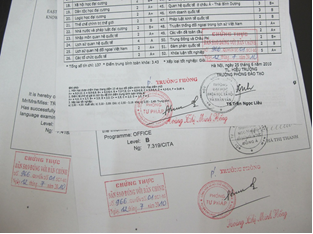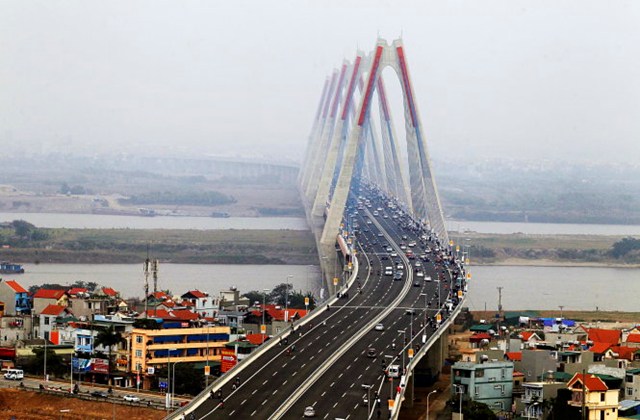According to the Draft Decree on the business of alcohol (Draft Decree), individuals and organizations are not required to obtain a license for the production of homemade alcohol for commercial purposes if those individuals or organizations are members of a traditional craft village specializing in homemade alcohol production.
However, the traditional craft village producing handmade alcohol must have a representative to apply for a License to produce handmade alcohol for the village, and this representative must be responsible for the production conditions of the alcohol applicable to all members of that craft village.
The conditions for granting a License to produce handmade alcohol for business purposes are stipulated as follows:
- Must be an enterprise, cooperative, or business household;- Ensure conditions of environmental protection, quality, food safety, and alcohol product labeling in accordance with existing laws.
Thus, individuals or organizations who are members of the traditional craft village producing handmade alcohol, although not needing to apply for a License, must comply with some regulations of the Craft Village, legal regulations on food safety, and other related regulations.
Illustrative Image
In the activity of producing handmade alcohol for business purposes, organizations, and individuals have the following rights and obligations:
- To participate in the association of the craft village producing alcohol if located within the geographic area of the craft village;
- To sell alcohol produced by their organization or individual to businesses with a License for alcohol distribution, wholesale alcohol sale, retail alcohol sale, on-site alcohol consumption sale, and businesses buying alcohol for export;
- To directly organize retail alcohol sales and on-site alcohol consumption at their affiliate stores without needing to request a License for alcohol distribution, wholesale, retail, or on-site alcohol consumption;
- Organizations or individuals producing handmade alcohol for business purposes are not allowed to import alcohol, semi-finished alcohol products, food-grade alcohol, and alcohol ingredients for blending into finished alcohol products;
- To pay the fee for the License to produce handmade alcohol for business purposes as regulated by the Ministry of Finance;
- To provide information about alcohol as stipulated;
- To implement periodic business production reports as specified in this Decree;
- To be responsible for implementing regulations on environmental protection in their alcohol production activities;
- Not to sell alcohol to individuals under 18 years old;
- Other rights and obligations as prescribed by law.
Decree No. 94/2012/ND-CP on the production and business of alcohol stipulates that alcohol belongs to the group of goods restricted by the state for business, but the Draft Decree has amended and clearly defined alcohol as a conditional business sector. This new regulation fills the previously unclear "restriction" loophole and stipulates specific and detailed conditions for the alcohol business. Additionally, the Draft Decree clarifies that alcohol does not include various types of beer or fruit juices with an alcohol content below 5% by volume.
Regarding activities of distribution, wholesale, retail sale of alcohol, and on-site alcohol consumption sale, the Draft stipulates that each form of activity must have a relevant operational License, which includes contents such as: (1) Enterprises established in accordance with the law, (2) Ensure charter capital, (3) Financial capacity, (4) Business location, (5) Conditions concerning food safety, fire prevention, and environmental protection.
Furthermore, regarding alcohol importation, enterprises with a License to distribute alcohol are allowed to import alcohol and must be responsible for the quality and food safety of the imported alcohol. Imported alcohol must receive a Certificate of conformity or a Certificate of food safety compliance (for alcohol without technical standards) from Vietnamese competent authorities before importation and must be granted a "Notice of meeting import food safety requirements" for each shipment by a state food safety inspection body designated by the Ministry of Industry and Trade.

 Article table of contents
Article table of contents





.Medium.png)
.Medium.png)
.Medium.png)
.Medium.png)
